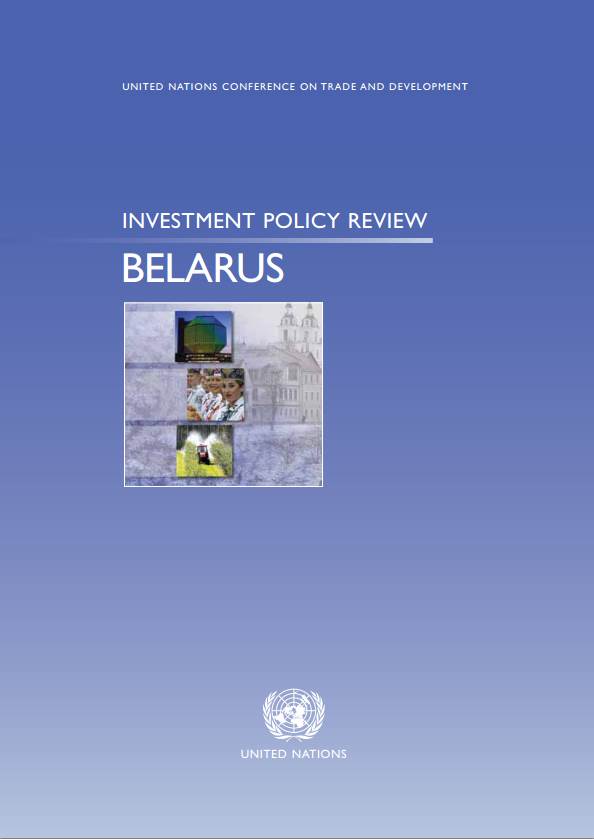Investment Policy Review of Belarus
After independence in 1991, Belarus chose to maintain a centrally-planned economy with limited forays into privatization. Heavy regulations and administrative procedures, an ambiguous stance vis-à-vis private sector development and frequent reversals characterized the policy environment. These resulted in a dominant presence of the State in agriculture, industry and services. In this context, the FDI attraction performance of Belarus was negatively affected.
However, since 2007, the authorities have embarked upon a vast reform programme to ease the constraints on private sector development, reduce the role of the State in the economy and attract FDI. The IPR, carried out at the request of the Government, finds that the reforms are heading in the right direction to deliver a more transparent, predictable and competitive business environment — indispensable for attracting high-quality investors.
Nonetheless, the IPR identifies a number of areas where further regulatory and administrative reforms are needed to enhance Belarus´ competitiveness and increase its attractiveness as an investment location. These include a fair pricing mechanism, an effective land titling system, a competitive fiscal regime and non-discrimination in the access to raw materials and industrial inputs.As requested by the Belarusian authorities, the IPR also outlines the key elements of a strategy to support SME development through FDI. The strategy can be articulated around four sets of measures aimed at:
- Improving the FDI-specific regulations by strengthening the treatment and protection provisions of the investment code
- Enhancing the general investment climate in areas such as taxation, competition and land
- Removing obstacles to SME development, particularly in the areas of price regulations, reporting requirements and administrative controls
- Adopting targeted policy interventions to foster the developmental role of FDI for the SME sector, such as carrying out professional investor targeting activities to attract investor in sectors which are prone to the establishment of supplier linkages and designing specific linkages policies
UNCTAD assisted the Government to deal with IPR recommendations by providing support to draft new investment legislation, and by organizing training workshops on:
- business planning for representatives of Government agencies involved with producing or evaluating investment proposals
- key notions and tools to carry out investor targeting for investment promotion practitioners;
- survey methodologies for collecting data on FDI and TNC activities for Government representatives involved in statistical activities.
















